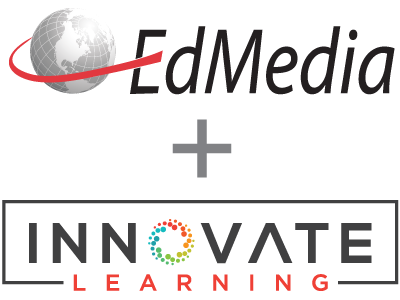
An Evaluation of MOOC Success: Net Promoter Scores
PROCEEDING
 Kristin Palmer, University of Virginia, United States
; Christopher Devers, Johns Hopkins University, United States
Kristin Palmer, University of Virginia, United States
; Christopher Devers, Johns Hopkins University, United States
EdMedia + Innovate Learning, in Amsterdam, Netherlands Publisher: Association for the Advancement of Computing in Education (AACE), Waynesville, NC
Abstract
Online education has evolved in recent decades. At its infancy, online education involved asynchronously posting questions online and then receiving feedback. However, more recently, online education has moved to synchronous video conversations that mimic face-to-face communication. Further, within the last decade, online education has expanded to include Massive Open Online Courses (MOOCs). MOOCs are online courses that include asynchronous video and discussion forums on platforms designed to scale so that millions of learners can participate. Proponents of MOOCs saw a potential that MOOCs could lower the cost of a high-quality education by delivering online content from prestigious universities at scale to millions of learners. MOOCs have reached millions of learners; however, MOOCs generally have low completion rates. Some have argued that due to these low completion rates MOOCs are not living up to their promise. We argue that there are other measures that provide deeper insight into learner satisfaction with MOOCs. Specifically, we used Net Promoter Score (NPS) to assess participants overall satisfaction with the course. Based on our results, the NPS suggests that even though the course had a low completion rate, participants were satisfied with the course and would recommend it to others.
Citation
Palmer, K. & Devers, C. (2018). An Evaluation of MOOC Success: Net Promoter Scores. In T. Bastiaens, J. Van Braak, M. Brown, L. Cantoni, M. Castro, R. Christensen, G. Davidson-Shivers, K. DePryck, M. Ebner, M. Fominykh, C. Fulford, S. Hatzipanagos, G. Knezek, K. Kreijns, G. Marks, E. Sointu, E. Korsgaard Sorensen, J. Viteli, J. Voogt, P. Weber, E. Weippl & O. Zawacki-Richter (Eds.), Proceedings of EdMedia: World Conference on Educational Media and Technology (pp. 1648-1653). Amsterdam, Netherlands: Association for the Advancement of Computing in Education (AACE). Retrieved August 14, 2024 from https://www.learntechlib.org/primary/p/184392/.
© 2018 Association for the Advancement of Computing in Education (AACE)
References
View References & Citations Map- Borden, J. (2014). MOOCs are dead-Long live the MOOC. Wired. Retrieved from http://www.wired.com/2014/08/moocs-aredead-long-live-the-mooc/
- Breslow, L., Pritchard, D.E., DeBoer, J., Stump, G.S., Ho, A.D., & Seaton, D.T. (2013). Studying learning in the worldwide classroom: Research into edX's first MOOC. Research& Practice in Assessment, 8, 13-25.
- Brooks, D. (2012). The campus tsunami. The New York Times. Retrieved from https://www.nytimes.com/2012/05/04/opinion/brooks-the-campus-tsunami.html
- Diaz, D.P. (2002). Online drop rates revisited. The Technology Source. Retrieved from http://technologysource.org/article/online_drop_rates_revisited/
- Frazier, S. (2016). Net promoter scores: The easy way to create customer loyalty. CustomerGauge. Retrieved from https://customergauge.com/blog/how-to-calculate-the-net-promoter-score/
- Gütl, C., Rizzardini, R.H., Chang, V., & Morales, M. (2014). Attrition in MOOC: Lessons learned from drop-out students. In Proceedings of International Workshop on Learning Technology for Education in Cloud (pp. 37-48). Santiago de Chile, Chile:
- Harasim, L. (2000). Shift happens: online education as a new paradigm in learning. The Internet and Higher Education, 3(1-2), 41-61.
- Hrastinski, S. (2008). Asynchronous and synchronous e-learning. EDUCAUSE Quarterly, 31(4), 51-55.
- Jordan, K. (2014). Initial trends in enrolment and completion of massive open online courses. The International Review of Research in Open and Distributed Learning, 15(1), 133-160.
- Khalil, H. & Ebner, M. (2014). MOOCs completion rates and possible methods to improve retention-A literature review. In J. Viteli& M. Leikomaa (Eds.), Proceedings of World Conference on Educational Media and Technology (pp. 1305-1313).
- Kizilcec, R.F., Piech, C., & Schneider, E. (2013). Deconstructing disengagement: Analyzing learner subpopulations in massive open online courses. In Proceedings of the Third International Conference on Learning Analytics and Knowledge (pp. 170-179).
- Leckart, S. (2012, March 20). The Stanford education experiment could change higher learning forever. Wired. Retrieved from http://www.wired.com/2012/03/ff_aiclass
- Means, B., Toyama, Y., Murphy, R., Bakia, M., & Jones, K. (2010). Evaluation of evidence-based practices in online learning: A meta-analysis and review of online learning studies. Structure. Washington, DC: U.S. Department of Education.
- Mehrotra, C.M., Hollister, C.D., & McGahey, L. (2001). Distance learning: Principles for effective design, delivery, and evaluation. Thousand Oakes, CA: Sage.
- Mehrotra, C.M., & McGahey, L. (2012). Online teaching. In B. Schwartz& R.A.R. Gurung (Eds.), Evidence-based teaching for higher education (pp. 59-76). Washington, DC: American Psychological Association.
- Onah, D.F., Sinclair, J., & Boyatt, R. (2014). Dropout rates of massive open online courses: Behavioural patterns. In Proceedings of the 6th International Conference on Education and New Learning Technologies (pp. 5825-5834). Barcelona,
- Perna, L.W., Ruby, A., Boruch, R.F., Wang, N., Scull, J., Ahmad, S., & Evans, C. (2014). Moving through MOOCs: Understanding the progression of users in massive open online courses. Educational Researcher, 43(9), 421-432.
- Peterson, R. (2013). What do MOOCs cost. Minding the Campus. Mind the Campus. Retrieved from https://www.mindingthecampus.org/2013/09/17/what_do_moocs_cost/
- Reich, J. (2014). MOOC completion and retention in the context of student intent. EDUCAUSE Review. Retrieved from https://er.educause.edu/articles/2014/12/mooc-completion-and-retention-in-the-context-of-student-intent
- Shah, D. (2018) By the Numbers: MOOCS in 2017. Class Central. Retrieved from https://www.class-central.com/report/moocstats-2017/
- Van Dessel, G. (2014, November). Measure customer satisfaction: CSAT, CES, and NPS compared. CheckMarket. Retrieved from https://www.checkmarket.com/blog/csat-ces-nps-compared/
- Wojciechowski, A., & Palmer, L.B. (2005). Individual student characteristics: Can any be predictors of success in online classes? Online Journal of Distance Learning Administration, 8(2).
- Yan, J. (2017). Net Promoter Score (NPS): What is a good net promoter score? QuestionPro. Retrieved from https://www.questionpro.com/blog/nps-considered-good-net-promoter-score/
- Zhenghao, C., Alcorn, B., Christensen, G., Eriksson, N., Koller, D., & Emanuel, E. (2015). Who’s benefiting from MOOCs, and why. Harvard Business Review. Retrieved from https://hbr.org/2015/09/whos-benefiting-from-moocs-and-why
These references have been extracted automatically and may have some errors. Signed in users can suggest corrections to these mistakes.
Suggest Corrections to ReferencesSlides
- EdMedia_Presentation_NPS_June_2018_52885.pptx (Access with Subscription)
